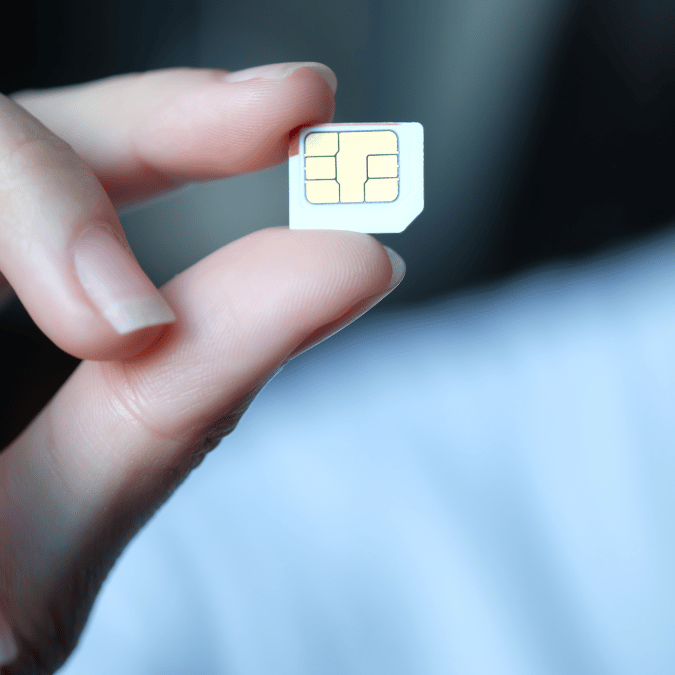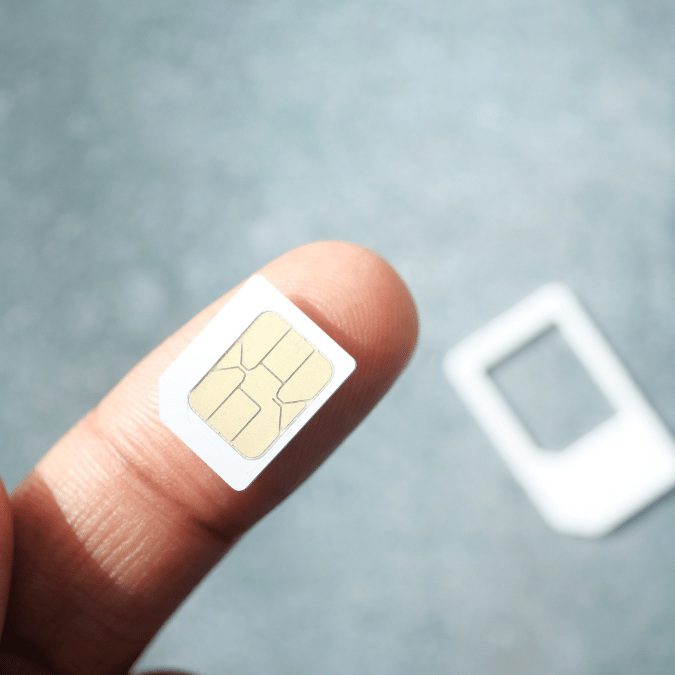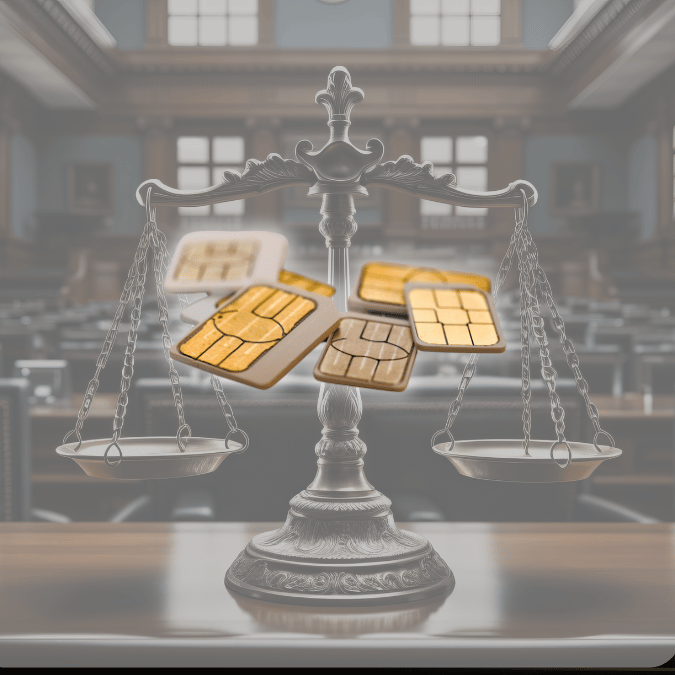Sim Card Registration Act,
The SIM Registration Act in the Philippines was enacted with the goal of reducing cybercrime by requiring individuals to register their SIM cards. This legislation, officially called the SIM Card Registration Act, was implemented to provide a layer of accountability in telecommunications and prevent anonymous communication, often used in scams and illegal activities. However, despite its good intentions, this law has several critical flaws that may hinder its effectiveness in tackling cybercrime.
With the rise of mobile phone usage across the country, cybercriminals have increasingly taken advantage of unregistered SIM cards to remain anonymous and difficult to track. Prepaid SIM cards, which were easily available for purchase without any identity verification, made it challenging for law enforcement to identify individuals involved in criminal activities such as text scams, spam, and even more serious crimes like human trafficking. To address these growing concerns, the government implemented the SIM registration Act, hoping to curb illegal activities by ensuring that every SIM card is linked to a verifiable identity.

What is the SIM Registration Act?
The SIM Registration Act, also known as Republic Act No. 11934, mandates the registration of all SIM cards by mobile phone users in the Philippines. It was created as a measure to combat fraud, identity theft, and other forms of cybercrime that have proliferated in recent years. By linking SIM cards to the identities of users, the government hopes to create a deterrent against criminal activities carried out via mobile devices.
This law requires individuals to provide valid identification when purchasing or activating a SIM card, whether for prepaid or postpaid services. Additionally, existing users of unregistered SIM cards are required to submit their personal details to the respective telecommunications providers within a set deadline, or risk deactivation of their mobile services.
The Flaws in the SIM Registration Act
While the SIM Registration Act may seem like a proactive approach to enhancing security, it is not without its shortcomings. Here are several reasons why this law may fall short of its intended goal:
1. Privacy Concerns
One of the primary criticisms of the SIM Registration Act is the potential for violations of privacy. The law requires the submission of personal information, including government-issued identification. Critics argue that this personal data could be mishandled or misused, either by government agencies or third-party organizations involved in the registration process. Data breaches are not uncommon, and any large-scale collection of personal information presents a tempting target for cybercriminals.
In fact, the Philippines has seen high-profile data breaches in the past, such as the 2016 hacking of the Commission on Elections (COMELEC) database, which exposed millions of voters’ personal information. Such incidents highlight the risks involved when large amounts of sensitive data are stored in centralized systems. If SIM registration data were to be compromised, it could lead to identity theft, fraud, and other forms of cybercrime—ironically, the very issues the law seeks to prevent.
2. Limited Impact on Crime Prevention
The assumption that requiring SIM card registration will deter cybercriminals is overly optimistic. Many scams are orchestrated through organized crime syndicates, which can easily find ways around the law by using fake IDs or registering SIM cards under false names. Criminals with access to forged identification documents will likely continue to evade detection, while innocent individuals may face increased scrutiny or wrongful accusations.
Additionally, much cybercrime, such as phishing or online fraud, does not necessarily require mobile phones or SIM cards, reducing the overall efficacy of the law in addressing more sophisticated cyber threats. Cybercriminals often use the internet as their primary tool, exploiting weak security measures in email systems, social media platforms, and financial websites. As such, focusing solely on SIM card registration may give a false sense of security while leaving more significant vulnerabilities unaddressed.
3. Challenges in Implementation
The SIM Registration Act also faces logistical hurdles. The process of registering every single SIM card in the Philippines is a monumental task, especially given that the country has millions of prepaid users. There have been reports of delays and difficulties in accessing registration sites, particularly in rural areas where internet access is limited. This presents a significant challenge to the law’s implementation and enforcement.
For example, in remote provinces with poor telecommunications infrastructure, residents may not have easy access to registration centers or online platforms, making it difficult for them to comply with the law. If large numbers of people fail to register their SIM cards on time due to these logistical challenges, they could face service disruptions, further exacerbating the digital divide between urban and rural communities.

Potential Solutions
For the SIM Registration Act to achieve its intended results, the government needs to address the following issues:
- Stronger data protection measures: Ensuring that personal information collected during SIM card registration is stored securely and safeguarded against potential breaches. Telecommunications providers should implement robust cybersecurity protocols, such as encryption and multi-factor authentication, to prevent unauthorized access to user data.
- Better enforcement: Collaborating with telecommunications companies and law enforcement agencies to prevent the use of fake IDs and strengthen the verification process. This could include the use of biometric data, such as fingerprint or facial recognition, to ensure that SIM cards are registered under legitimate identities.
- Public awareness campaigns: Educating the public on the importance of SIM card registration and addressing concerns about privacy and security. The government should be transparent about how personal data will be handled and protected, and provide clear information about the consequences of non-compliance.
Conclusion
While the SIM Registration Act is a step towards combating cybercrime in the Philippines, it is far from a perfect solution. Its success will depend on the government’s ability to address the law’s inherent flaws, such as privacy concerns, the potential for misuse of personal data, and the logistical challenges of registering millions of SIM cards. Without these adjustments, the SIM Registration Act may ultimately be an ineffective measure in the ongoing fight against cybercrime.
Frequently Asked Questions (FAQs) About the SIM Registration Act
1. What is the SIM Registration Act?
The SIM Registration Act, also known as Republic Act No. 11934, is a law in the Philippines that mandates all SIM card users to register their SIM cards with valid identification. The goal is to curb cybercrime by linking each SIM card to the identity of its owner, making it harder for criminals to use anonymous prepaid SIMs for illegal activities.
2. Why was the SIM Registration Act introduced?
The SIM Registration Act was introduced to combat rising instances of cybercrime, including text scams, identity theft, and other forms of fraud committed through unregistered SIM cards. By requiring registration, the government aims to enhance accountability and make it easier to trace individuals involved in criminal activities using mobile phones.
3. How does the SIM Registration Act affect existing SIM card users?
Existing users of unregistered SIM cards must register their SIMs by the deadline set by the government. Failure to do so will result in the deactivation of their mobile services. Telecommunications companies provide online and in-person registration options for users to comply with the law.
4. What personal information is required for SIM card registration?
To comply with the SIM Registration Act, individuals must provide valid government-issued identification, such as a driver’s license, passport, or voter’s ID. The specific requirements may vary slightly depending on the telecommunications provider, but basic personal information like full name, address, and ID number will be required.
5. Are there any privacy concerns related to the SIM Registration Act?
Yes, there are privacy concerns surrounding the SIM Registration Act. Critics argue that the collection and storage of personal data could lead to misuse or data breaches. It’s essential that the government and telecom providers implement strong data protection measures to safeguard users’ information.
6. Will the SIM Registration Act eliminate cybercrime in the Philippines?
While the SIM Registration Act is a step toward reducing cybercrime, it is not a comprehensive solution. Criminals may still find ways around the law, such as using fake IDs, and many forms of cybercrime, like online fraud and phishing, do not necessarily involve mobile phones or SIM cards.
7. What happens if I don’t register my SIM card?
If you fail to register your SIM card by the deadline, your mobile service will be deactivated, meaning you will lose access to calls, texts, and mobile data services. You may have the opportunity to reactivate your SIM by completing the registration process, but this could involve delays and inconvenience.
8. How can rural users without internet access comply with the SIM Registration Act?
Rural users with limited internet access can register their SIM cards at designated service centers or via their telecom provider’s physical stores. The government has acknowledged the challenges of rural registration and is working to provide alternative methods to ensure compliance.
9. What happens to SIM cards used for business purposes?
SIM cards used for business purposes, such as those for corporate plans or business devices, must also comply with the SIM Registration Act. The process typically involves registering the SIM cards under the company’s name and providing the required documentation.
This link will give more of an in depth view on the sim card registration act.





